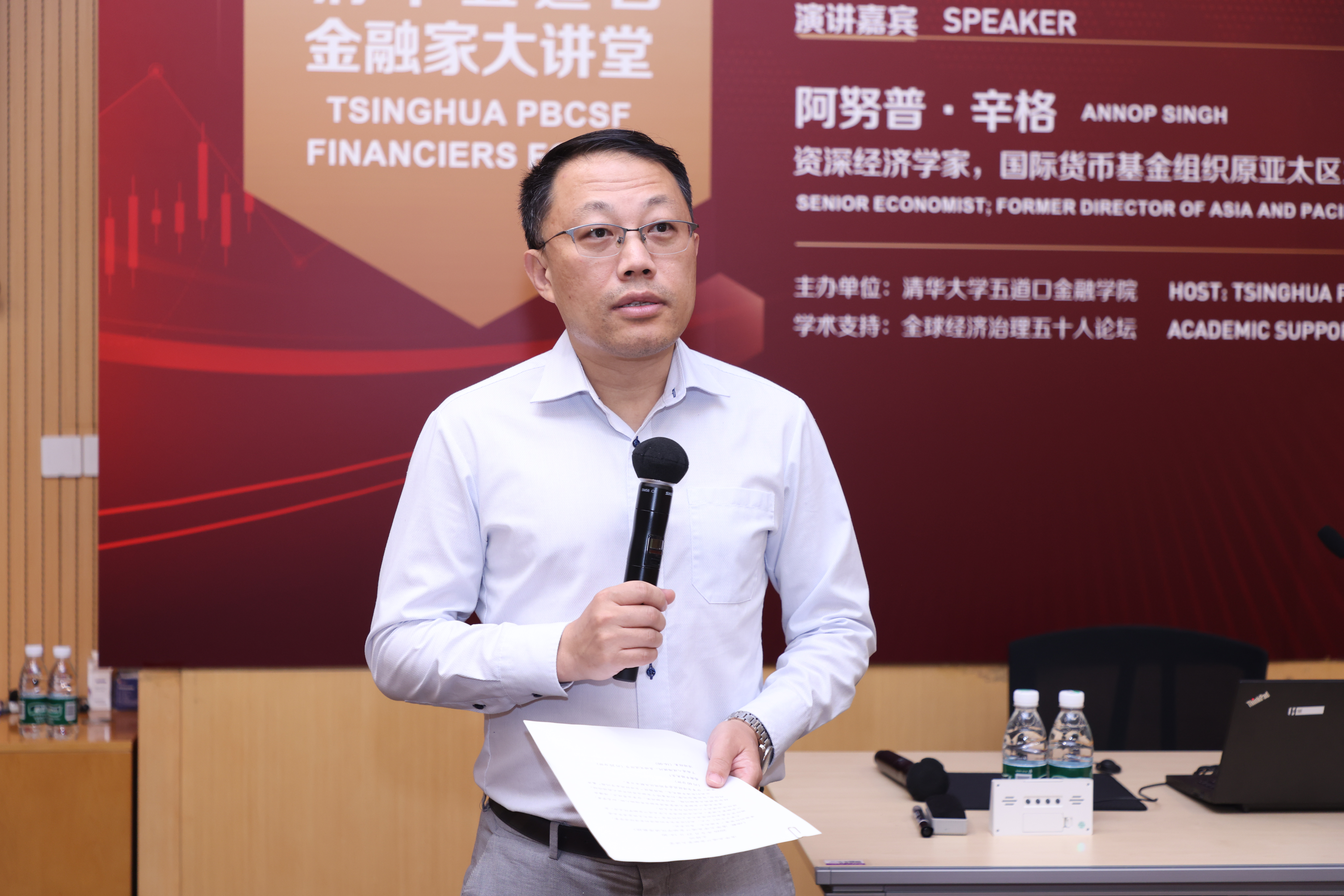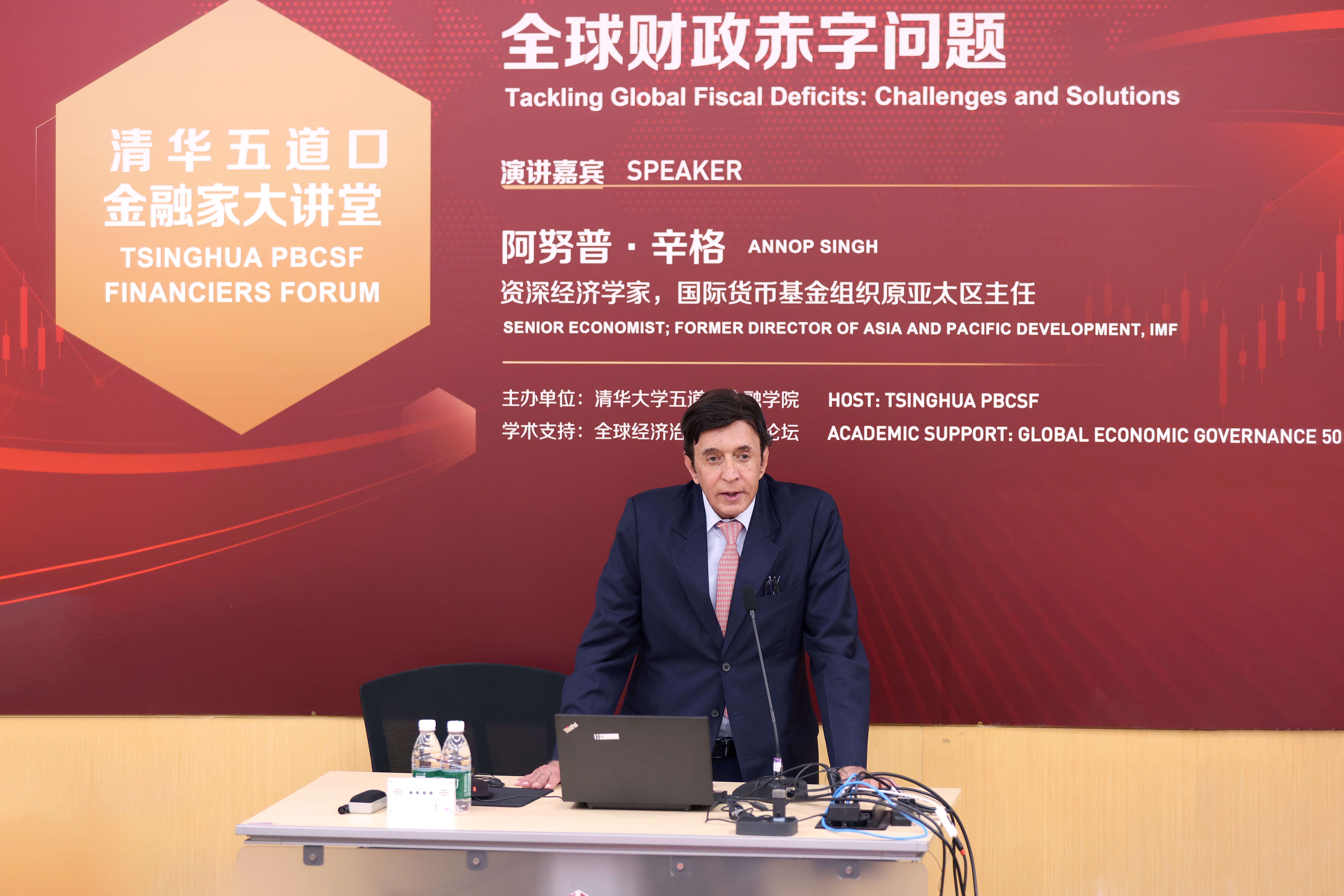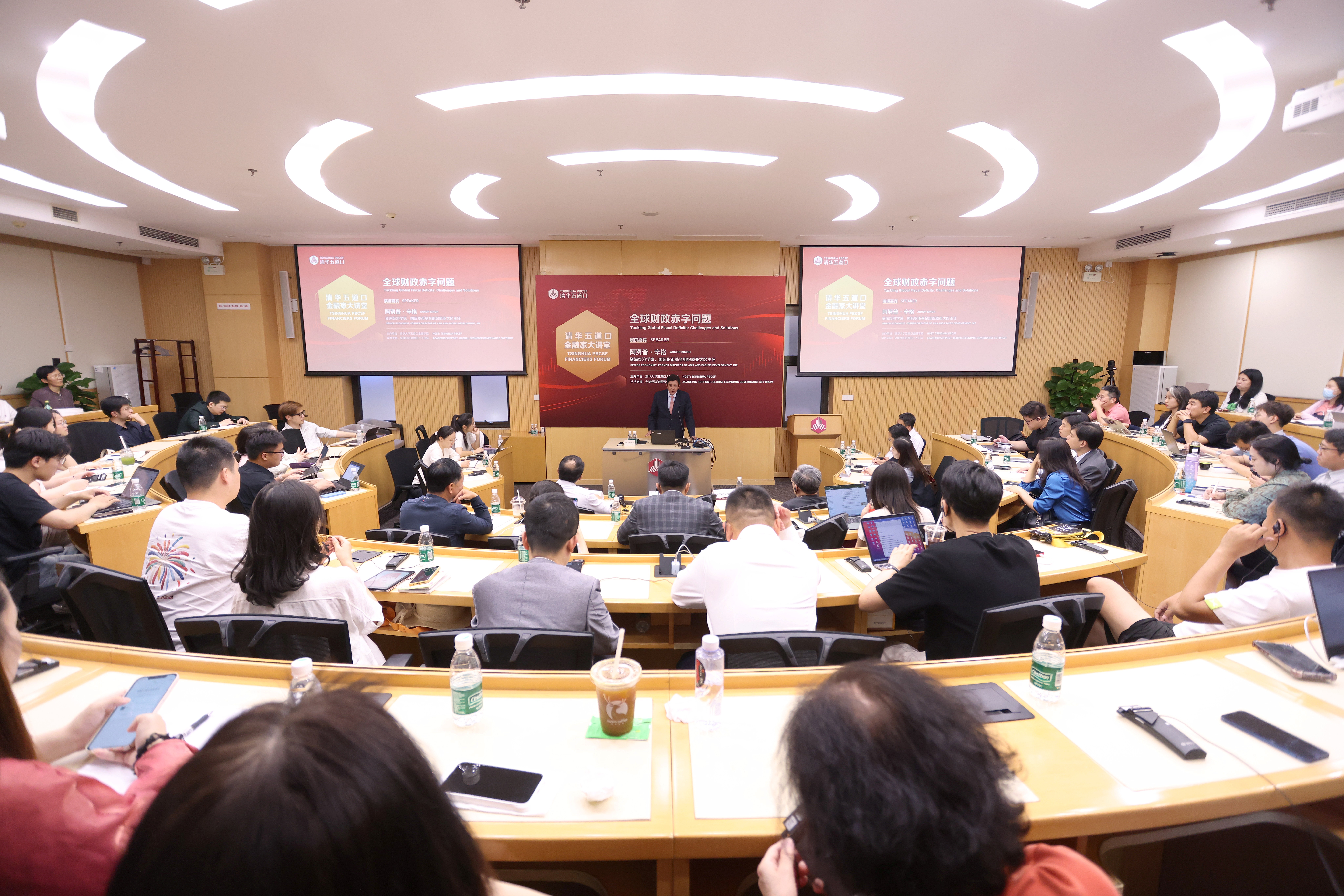On May 27, renowned economist and former Director of the IMF Asia and Pacific Department, Anoop Singh, was invited to deliver a lecture titled “The Global Fiscal Deficit Challenge” at the Tsinghua PBCSF Finance Leaders Forum. The event was chaired by Professor Lu Yi, Chair Professor at Tsinghua University’s PBC School of Finance, and attracted over one hundred Tsinghua University students, faculty members, and alumni.

Photo: Lu Yi chairing the session
In his keynote speech, Anoop Singh pointed out that the focus of global economic growth is shifting from external trade to domestic demand, and governments around the world are increasingly turning to expansionary fiscal policies to achieve a variety of economic objectives. This has led to a sustained upward trend in fiscal deficits. At the same time, global public debt has reached a historic high, and institutions including the IMF project that public debt levels will continue to rise over the next five years. As a result, addressing the global fiscal deficit has become both a pressing and critical issue. He emphasized that fiscal deficits are not confined to a few individual countries, but have become a global challenge. In major economies such as China and the United States, the ratio of broad government debt to GDP is already at historical highs, while a quarter of emerging markets face debt distress risks, with debt servicing capacity already showing signs of strain in some nations.

Photo: Anoop Singh delivering the lecture
Anoop Singh called for greater attention to the global fiscal deficit and advocated for the establishment of a new fiscal governance framework that addresses the issue from domestic, international, and legal dimensions. He stressed the need to close loopholes that allow governments to intentionally conceal fiscal expenditures and financing sources, as a way to cope with the current crisis.
During the interactive Q&A session that followed, students and alumni eagerly posed questions. Anoop Singh responded in detail to inquiries on topics including the U.S. fiscal crisis, China’s tax and fiscal reform, a comparative analysis of the Chinese and Indian economic models, the transformation of the international monetary system, the role of international organizations in debt governance, and international cooperation on debt issues and climate change.

Photo: Lecture audience
This seminar was organized by the Global Economic Governance 50 Forum and hosted by the Tsinghua University PBC School of Finance.
The Global Economic Governance 50 Forum is a high-level think tank initiated by Mr. Zhu Min, former Deputy Governor of the People’s Bank of China and former Deputy Managing Director of the IMF, and hosted by the Tsinghua University PBC School of Finance. The Forum is committed to conducting independent, forward-looking and academically supported policy research on the improvement and reform of the global economic governance system, and providing solutions on how China better engages in global economic governance.